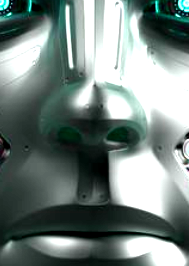High-tech nose tested
 Researchers have developed an electronic nose that detects chemicals in the breath of lung cancer patients, and can assess their response to potential treatments.
Researchers have developed an electronic nose that detects chemicals in the breath of lung cancer patients, and can assess their response to potential treatments.
The device, called the eNose, has been shown to have an accuracy rating of 85 per cent - more accurate than current methods which involve analysing tissue samples, which are more invasive and time consuming.
Ms Rianne de Vries, a PhD student in the department of respiratory medicine at Amsterdam University Medical Centres, is also chief operating officer of Breathomix, which is currently producing the eNose.
“When using the eNose, the patient takes a deep breath, holds it for five seconds and then slowly exhales into the device,” Ms de Vries says.
“The eNose sensors respond to the complete mixture of VOCs [volatile organic compounds] in the exhaled breath; each sensor has its highest sensitivity to a different group of molecules.
“The sensor readings are sent directly to and stored at an online server for real-time processing of the data and for ambient air correction because the air that you exhale is influenced by the air that you inhale.
“The measurement takes less than a minute, and the results are compared to an online database where machine-learning algorithms immediately identify whether or not the patient is likely to respond [to therapy].”
The other first author of the study, Dr Mirte Muller, a PhD student in the department of thoracic oncology at The Netherlands Cancer Institute, said: “We found that before the start of treatment with immunotherapy, the eNose analysis of exhaled breath from the patients with non-small cell lung cancer [NSCLC] could distinguish between responders and non-responders with an accuracy of 85 per cent.”
“Our findings show that breath analysis by eNose can potentially avoid application of ineffective treatment to patients that are identified by eNose as being non-responders to immunotherapy, which in our study was 24 per cent of the patients.
“This means that in 24 per cent of NSCLC patients this treatment could be avoided, without denying anyone effective treatment.”
Professor Michel van den Heuvel, a professor of thoracic oncology, says it is just the start.
“We are convinced that this study merely scratches the surface. It represents the first introduction of modern precision medicine, namely that molecular fingerprints can be easily obtained and quickly analysed on the spot,” he said.
“This truly offers new possibilities for the individual patient and the doctor.
“The power of this eNose system is that it has been properly validated, both technically and clinically, which is essential.
“We believe that analysis of exhaled breath is going to become an important diagnostic tool and will guide future treatment in oncology as well as in many other diseases.”








 Print
Print